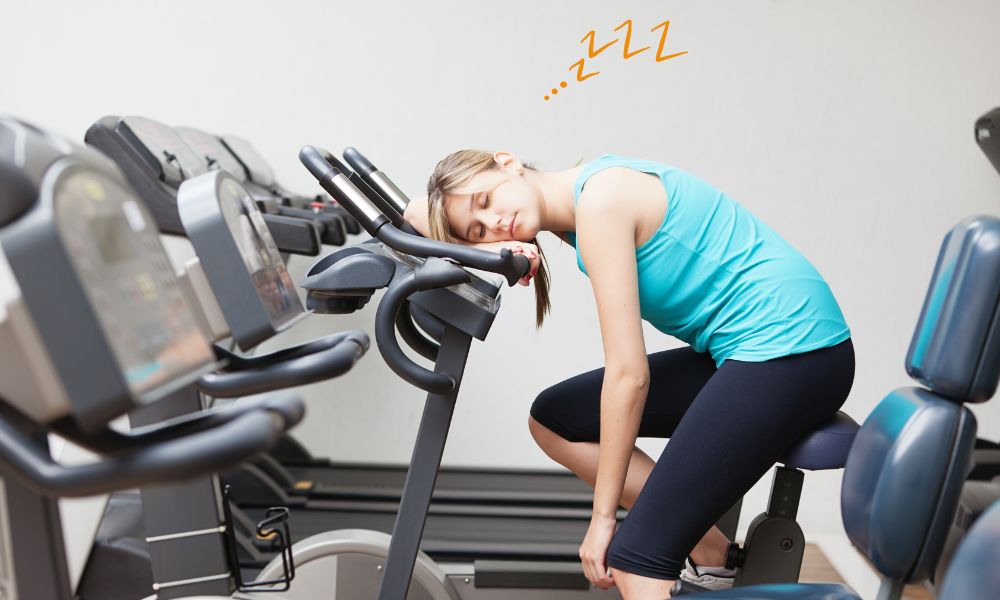
Categories
Sleep Is Important!
Quality sleep is not just a luxury; it’s a fundamental component in the quest for better health, fitness, and fat loss. Whether your goal is to shed a few pounds, build muscle, or feel more energetic throughout the day, getting enough restorative sleep is crucial.
Many of us believe that we sleep well enough, but we have adapted to suboptimal sleep habits. We’ve lost touch with what it truly means to rest properly, mistaking our compromised sleep patterns for normalcy. This silent epidemic of poor sleep affects more people than we realise.
Sleep serves as the body’s prime time for recovery and rejuvenation. During sleep, muscles repair, the brain processes the day’s information, and the body prepares for another day of activity. Our bodies can’t perform these critical functions efficiently without sufficient quality sleep. As a result, our efforts in the gym and our attempts to eat healthily are undermined. Sleep, quite simply, is the cornerstone of achieving and maintaining fitness and overall health.
How Sleep Works
Circadian rhythm is an internal clock that regulates our sleep-wake cycles over 24 hours. This rhythm is naturally aligned with the rise and fall of the sun, guiding us to wake up in daylight and sleep when it gets dark. As the seasons change, our bodies adapt to different daylight hours, adjusting our sleep patterns accordingly. This natural cycle is essential for maintaining balance in our physical and mental health.
- Cortisol and Melatonin
Cortisol and melatonin are two essential hormones that influence our sleep and wakefulness. Cortisol, the stress hormone, is produced in higher amounts daily to keep us alert and active. As night approaches, cortisol levels drop, allowing melatonin, the sleep hormone, to increase. Melatonin helps us feel sleepy and signals that it’s time to rest. These hormones’ proper balance and timing are critical for a good night’s sleep.
- Growth Hormone
Growth hormone plays a vital role in muscle repair and growth, making it especially important for those who exercise regularly. This hormone is primarily released during deep sleep, aiding in muscle recovery and strengthening after a workout. Without sufficient quality sleep, growth hormone production is compromised, hindering muscle recovery and overall fitness progress.
The Effect of Poor Sleep
Even brief disruptions in your sleep can significantly impact your body’s hormonal balance. When your sleep is interrupted, cortisol, the stress hormone, is produced. This spike in cortisol levels disrupts your sleep further and suppresses the production of growth hormones. Growth hormone is essential for muscle repair and growth, so these disruptions can severely hamper your fitness progress. No matter how effective your workout is, your muscles won’t recover and strengthen properly without adequate and uninterrupted sleep.
- Carbohydrate Metabolism
Poor sleep has a direct effect on how your body processes carbohydrates. With inadequate rest, your body’s efficiency in metabolising carbohydrates decreases. This inefficiency leads to higher blood sugar levels and an increased likelihood of insulin resistance.
- Insulin Mismanagement
Insulin is a hormone that helps regulate blood sugar levels. Poor sleep can cause your body to mismanage insulin, making it harder to check your blood sugar levels. This mismanagement often leads to higher insulin levels, which can promote fat storage, especially around the abdomen.
- Connection to Diet
When combined with a carbohydrate diet, poor sleep creates the perfect storm for fat storage. Without sufficient sleep, your body is already primed to store fat. Adding excess carbohydrates to the mix exacerbates the issue, making it even harder to lose weight. This combination can derail your fitness goals, leading to weight gain and decreased overall health.
Simple Strategies to Improve Sleep
- Routine
Establishing a regular bedtime routine is crucial for improving sleep quality. Aim to go to bed at the same time every night, even on weekends. This consistency helps regulate your body’s internal clock, making it easier to fall asleep and wake up naturally.
- Duration
Most adults need between 7 to 9 hours of sleep per night to function at their best. Prioritise this range to ensure your body has enough time to repair, rejuvenate, and prepare for the next day. Experiment within this range to find the amount of sleep that leaves you feeling most refreshed.
- Environment
Creating an ideal sleep environment can significantly enhance your sleep quality. Make your bedroom as dark as possible with blackout curtains or an eye mask. Minimise noise with earplugs or a white noise machine. A dark and quiet room signals your body that it’s time to rest.
- Caffeine and Technology
Caffeine and electronic devices can interfere with your sleep. Avoid consuming caffeine after 4 pm as it can stay in your system and disrupt your ability to fall asleep. Additionally, the blue light emitted from screens can hinder melatonin production. Switch off all electronic devices at least an hour before bedtime to help your body prepare for sleep.
- Regular Exercise
Regular physical activity is one of the best ways to improve sleep quality. Exercise helps to reduce stress and anxiety, two major sleep disruptors. Aim for at least 30 minutes of moderate exercise most days of the week. Complete your workout a few hours before bedtime to avoid being too energised to sleep.
Sleep Tight!
We help our members with a nutritional programme that works for them. If you’re struggling, give us a shout at one of our gyms in West London, and we’ll help you work out a plan that suits you.
You may also find our nutritional e-books helpful to eating healthier.
Related Articles
- Sleep Is For Heroes
- Tips to Improving Your Sleep for Better Results
- 7 Things You Can Do To Get the Most Out Of Your Sleep
- THE Ultimate Guide to Feeling Your Best
- Health and Fat Loss In a Nutshell


